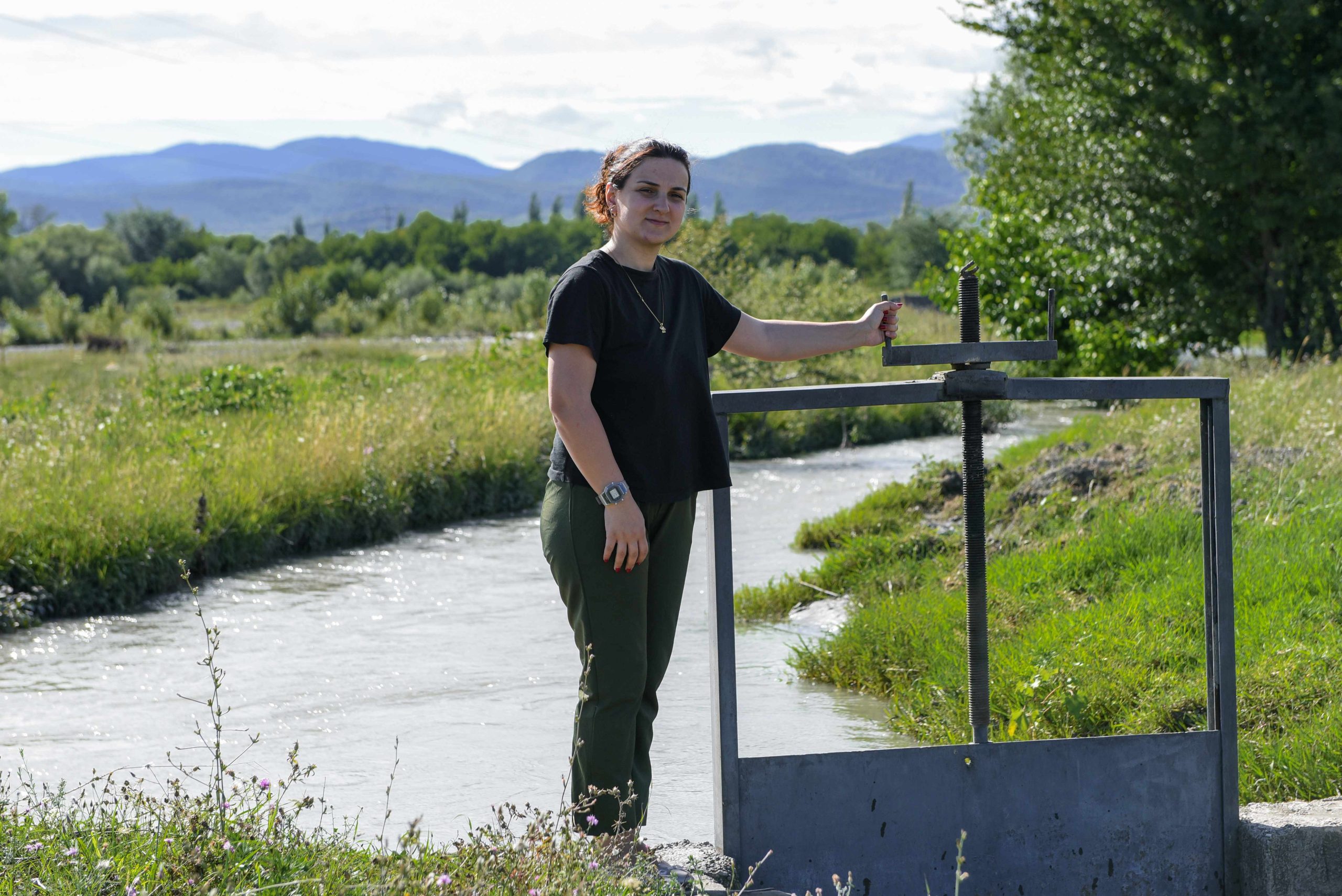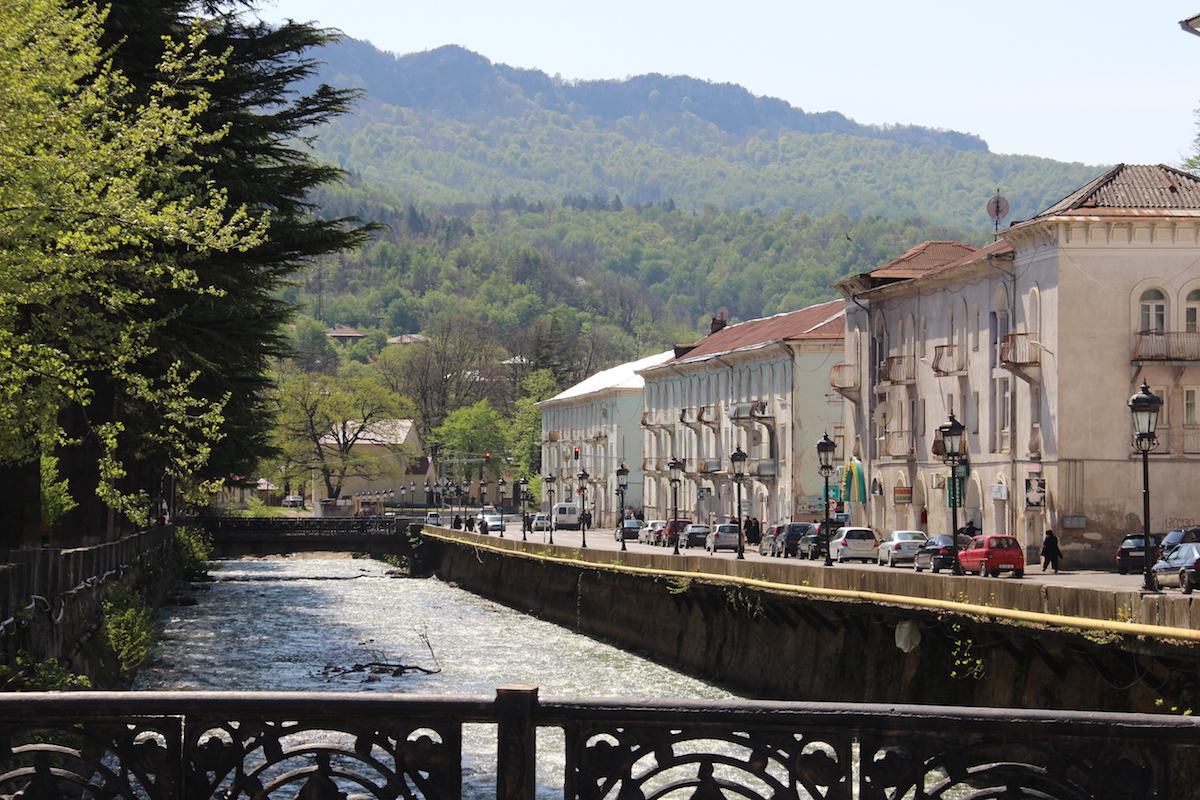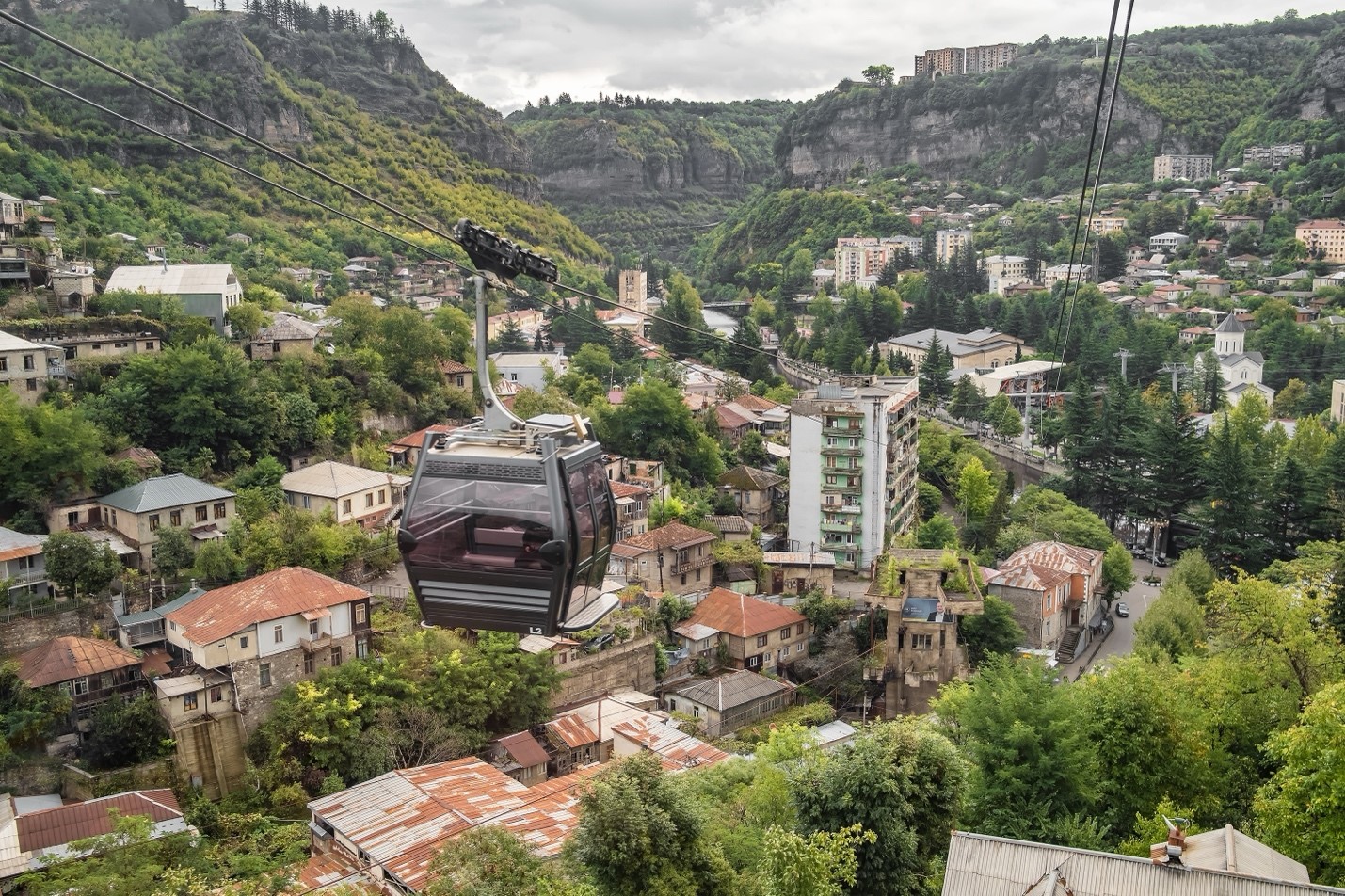
Chiatura is a city in Western Georgia known for its manganese ore extraction and processing, which causes significant environmental harm. However, with the support of the European Union and the Caucasus Environmental NGO Network (CENN), the villages of Zodi and Darkveti near the city managed to partially address the issue by treating one hectare of land with special fertilizers to protect it from desertification.
Manganese from Chiatura
Manganese mining in Chiatura began back in 1879 during the Russian Empire, and it became even more intensive after the Sovietization of Georgia.
Until the 1990s, Chiatura was the main supplier of manganese to the Soviet Union, with significant amounts also exported to Eastern European countries.
Despite extensive mining, Chiatura still has some of the largest manganese reserves in Europe—about 215 million tons.
However, along with generating income, manganese extraction causes significant harm. In Chiatura’s villages, residents say the soil is gradually drying out, erosion is intensifying, the risk of landslides is increasing, and the land is becoming unsuitable for agriculture and habitation.
“As a result of manganese mining, the soil becomes depleted over time, making the land unfit for growing anything. And since even grass stops growing, it can no longer be used as pasture,” explains Teona Kapanadze, a member of the local organization Mkhardamkhar.
Last year, in 2023, this organization began seeking funds to address the problem. Coincidentally, CENN announced a small grants competition as part of the “Georgia’s Climate Program” during that time.
Чhe four-year “Georgia’s Climate Program” is being implemented with financial support from the European Union by the organization CENN, in collaboration with the Kakheti Regional Development Foundation (KRDF), the Chiatura Union (ACU), the Association for the Development of Agro-Tourism in Racha-Lechkhumi and Kvemo Svaneti (RLS-ADA), and the Union of Young Teachers (YPU).
The project, covering four regions of Georgia – Guria, Imereti, Kakheti, and Racha-Lechkhumi and Kvemo Svaneti – aims to strengthen civil society and promote human rights and fundamental freedoms, with a focus on access to water and a healthy environment.
“Mitigating the effects of climate change by reducing soil degradation” was the name of the project submitted by the Mkhardamkhar organization to the grant competition, which it won.
After that, major work began in Chiatura.
Soil study and restoration
Teona says that they first studied the soil, and after receiving the initial results, decided to start with two villages—Zodi and Darkveti. The goal was to restore the soil and protect it from desertification.
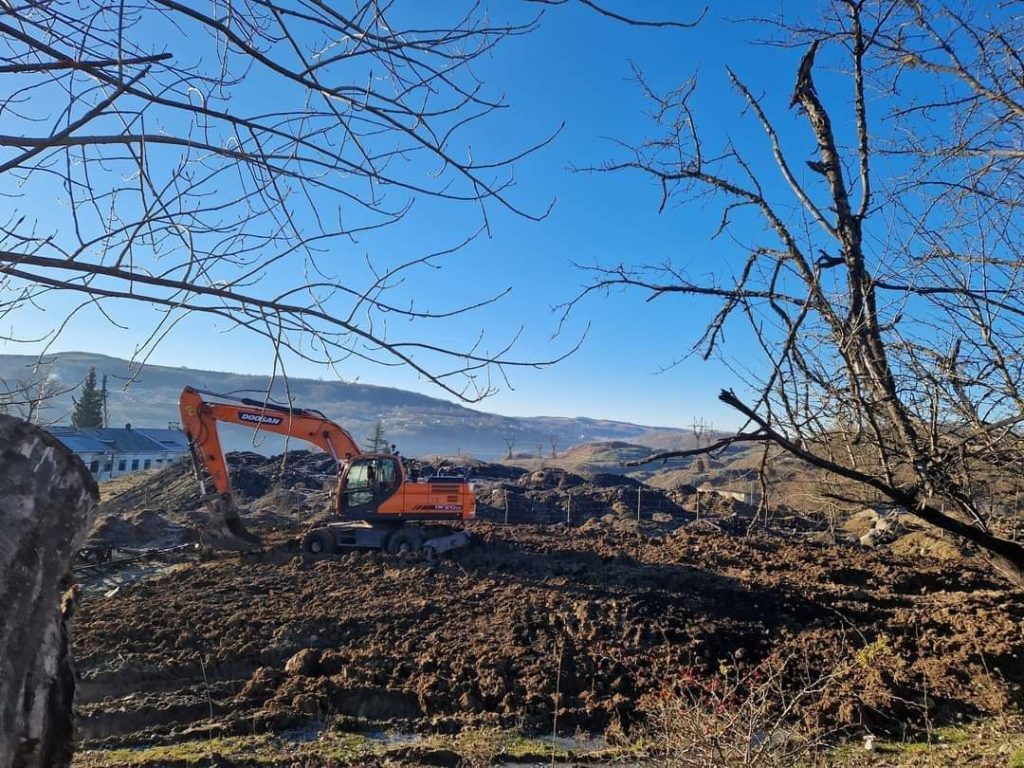
Teona explains how the process was carried out:
“First, we level the soil using specialized equipment. The next step is preparing fertile soil. For this, we often use river silt as well as bio-fertilizers. Then grass is planted, or even better, tree seedlings.”
Based on laboratory studies, the type of bio-fertilizer recommended for the specific soil was identified and selected, providing enrichment and essential nutrients for the seedlings.
Afterward, acacias, cypresses, and other trees were planted here.
Improving the situation will take many years, but the initial work has already had some positive effects on both the soil and the environment.
Teona Kapanadze describes the process of reclaiming degraded soil:
“Over time, as the root systems of plants develop, the restoration process begins, and the soil gradually becomes fertile again. Seedlings are mainly selected based on their adaptability to the local climate.
As the root system develops, it penetrates deeply into the soil, forming roots and stabilizing the soil.
As a result, the soil becomes denser, the processes of decay and erosion slow down and eventually stop, which, in turn, halts landslide activity.”
In the villages of Zodi and Darkveti, land plots damaged before 2007 have been restored. However, there are still large areas that remain damaged and in need of rehabilitation.
Trainings for youth
In addition to carrying out practical work, the project also aimed to raise environmental awareness among the local population, especially the youth. To achieve this, several training sessions were held, one of which focused on climate change.
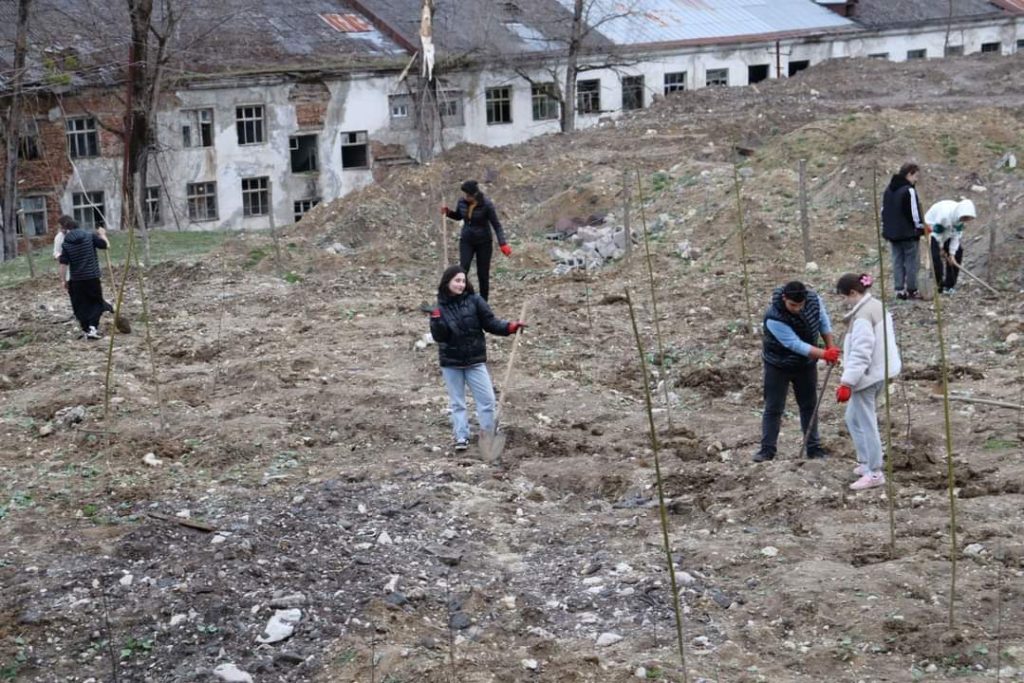
One of the participants in the training was 16-year-old Lizi Mezvenishvili from the village of Tsirkvali. Lizi and her friends also took part in the land reclamation work. After planting the seedlings, they came every week throughout the summer to water and care for them.
“It was a very pleasant feeling. We bonded, worked together, and helped each other. We all remember those days very well,” Lizi shares.
The girl says that most of her peers learn interesting information about environmental issues through this type of informal education:
“Although geography textbooks have entire sections dedicated to environmental protection, schools still don’t pay enough attention to this topic. But now everyone is concerned about the environment we live in. Everyone is worried, for instance, about the dirt flowing along the roads, polluted air, and contaminated water.”
Advocacy campaign for allocating funds to local budget
The project also included advocacy campaigns aimed at bringing soil maintenance and restoration issues to the local agenda.
To achieve this, the organization “Mkhardamkhar” and the regional Climate Action Group (CAG) prepared a special petition through which local residents requested the allocation of funds in the local budget for soil restoration.
Their request was granted — the 2024 local government budget allocated 30,000 lari (approximately $10,000) for this purpose.
According to Teona, reclamation work was indeed carried out on certain plots this year. She believes that, based on this experience, the issue will remain a priority in local budgets for the coming years.
This article was written as part of the Georgia Climate Action Project, funded by the European Union and implemented by CENN in collaboration with the Kakheti Regional Development Foundation (KRDF), the Chiatura Union (ACU), the Association for Agrotourism Development of Racha-Lechkhumi and Kvemo Svaneti (RLS-ADA), and the Young Pegagogue’s Union (YPU). The project aims to strengthen civil society and promote human rights in four target regions of Georgia—Guria, Imereti, Kakheti, and Racha-Lechkhumi and Kvemo Svaneti—with a focus on the right to access water and a healthy environment.

